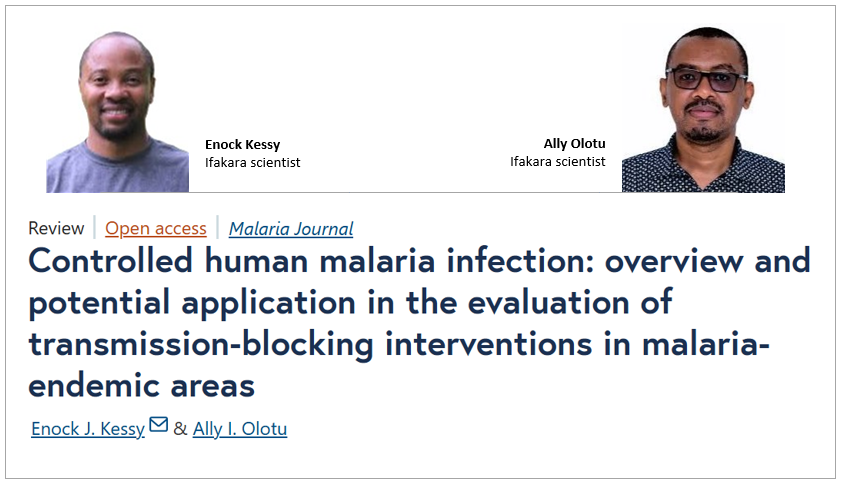
REVIEW: Push for more malaria research in endemic regions

Scientists at the Ifakara Health Institute are calling for more investment in malaria research within countries where the disease remains widespread. In particular, they emphasize the need to expand Controlled Human Malaria Infection (CHMI) studies in these regions, highlighting that such research is crucial for accelerating the development of effective interventions to stop the spread of malaria.
The call comes from a scientific review co-authored by Enock Kessy and Dr. Ally Olotu, both researchers at Ifakara, published in the Malaria Journal earlier this year. In the review, they highlight CHMI’s potential in testing new tools—especially transmission-blocking interventions (TBIs)—that could play a key role in malaria elimination. Their work underscores that adapting CHMI models for malaria-endemic settings would be an “invaluable addition to the malaria toolbox”.
What is Controlled Human Malaria Infection (CHMI)?
CHMI involves intentionally infecting healthy volunteers with malaria parasites in a carefully controlled, safe environment. Participants are closely monitored and treated before infections become severe. This approach enables researchers to quickly and efficiently evaluate the efficacy of drugs or vaccines in a small group, well before large-scale trials.
Until now, CHMI trials have been conducted in non-endemic regions such as Europe, the USA, and Australia. However, the review argues that moving these studies to malaria-endemic countries will generate more relevant data and improve the development of vaccines tailored to local populations.
"There is a need for the adoption of a CHMI model for the evaluation of transmission-blocking interventions in malaria-endemic countries,” the review states. “The establishment of such a model in malaria-endemic countries will facilitate the selection of potential transmission-blocking intervention (TBI) candidates and accelerate their development."
Progress and remaining challenges
The review cites successful CHMI trials already conducted in Tanzania, Kenya, Gambia, Gabon, and Equatorial Guinea as proof that such studies can be done safely and ethically in Africa. However, challenges remain, particularly regarding informed consent, infrastructure, and technical capacity required to regulate and manage these complex studies.
Ifakara’s role in CHMI research
Over the past years, Ifakara Health Institute has been actively involved in several projects related to CHMI. These projects aim to develop and evaluate new malaria interventions—including vaccines and drugs—by using CHMI as a research tool. The institute’s hands-on experience contributes valuable data and helps build the technical capacity required to run these complex trials in malaria-endemic settings.
Learn more about these studies here: Study 1 | Study 2
Why Transmission-Blocking Interventions matter
Unlike traditional malaria tools that prevent infection or treat symptoms, transmission-blocking interventions target the parasite’s ability to spread from humans to mosquitoes. These include vaccines aimed at sexual-stage parasites and drugs that clear gametocytes—the parasite form responsible for infecting mosquitoes.
Because TBIs don’t directly benefit the individual receiving them (they benefit the community), the review argues that CHMI trials are especially well-suited for early-stage evaluation of these tools. CHMI studies can measure how well an intervention reduces the presence or infectivity of gametocytes, providing fast, valuable insights.
Looking ahead
The authors conclude that expanding CHMI capacity in malaria-endemic regions is not just possible—it is necessary for advancing locally relevant malaria tools. By overcoming logistical and ethical challenges, CHMI trials in Africa could be a game-changer in the global fight to eliminate malaria.
Read the publication here.
